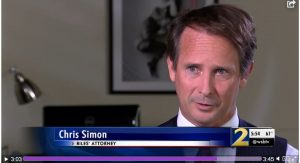The Court of Appeals recently issued an opinion stemming from a Georgia premises liability lawsuit a woman filed against a shopping center (SC) after she suffered injuries in a car accident in the SC’s parking lot. According to the record, the woman and her daughter were driving in the parking lot when their vehicle collided with an SUV. The parties all exited their vehicles and began shouting and accusing each other. A mall security officer escorted the parties to another location and, after speaking with the other driver, advised everyone that they were free to leave. The other driver got into her vehicle and quickly reversed, knocking the plaintiff to the ground and pinning her leg under the tire, resulting in a complete amputation. A witness heard the altercation and heard the plaintiff’s daughter scream and heard the driver state, “I’m sorry, I didn’t mean to do it.”
The plaintiff and her family filed a lawsuit against the other driver, the SC, and the security company that provided services to the shopping center. Amongst other claims, the plaintiff argued that the SC was liable for premises liability, negligent security, and vicarious liability for the security guard’s actions. The defendant’s appealed the trial court’s denial of summary judgment.
The defendant argued that the law entitled them to summary judgment because the incident was not reasonably foreseeable. Under Georgia law, landowners or occupiers maintain a duty to keep their premises and approaches safe for their invitees. The law further explains that a property owner is not an “insurer” of an invitee’s safety from intervening criminal acts unless the criminal act was reasonably foreseeable. However, property owners may be liable if they have reason to anticipate a criminal act. In which case, they must meet their duty to exercise ordinary care to protect against injury from that act.
 Atlanta Injury Attorney Blog
Atlanta Injury Attorney Blog



